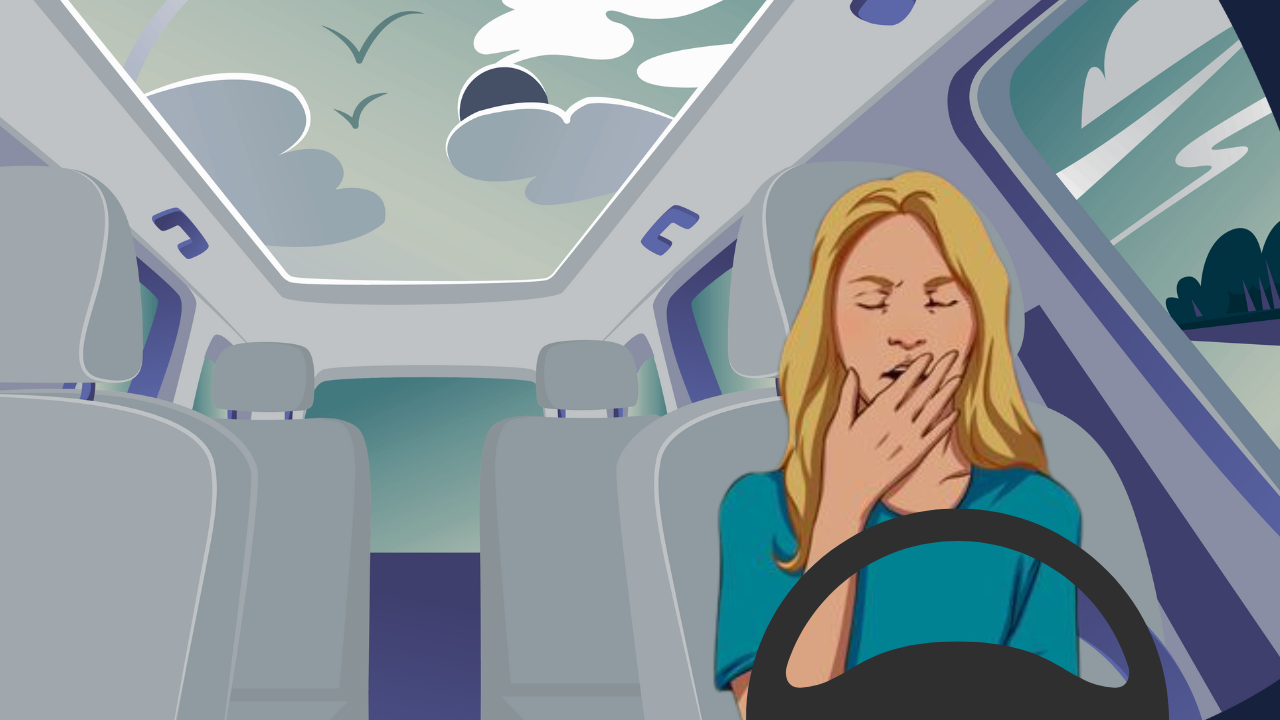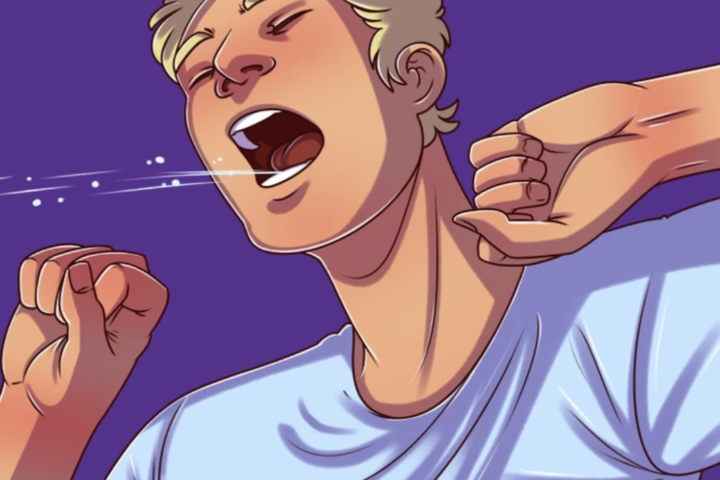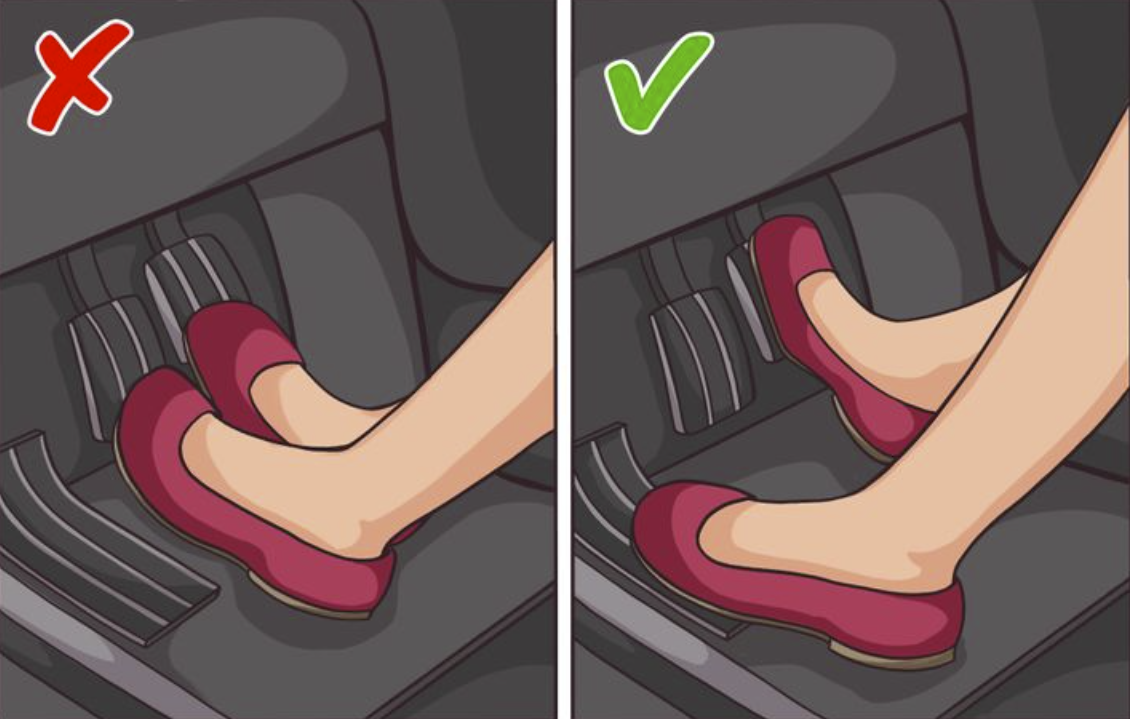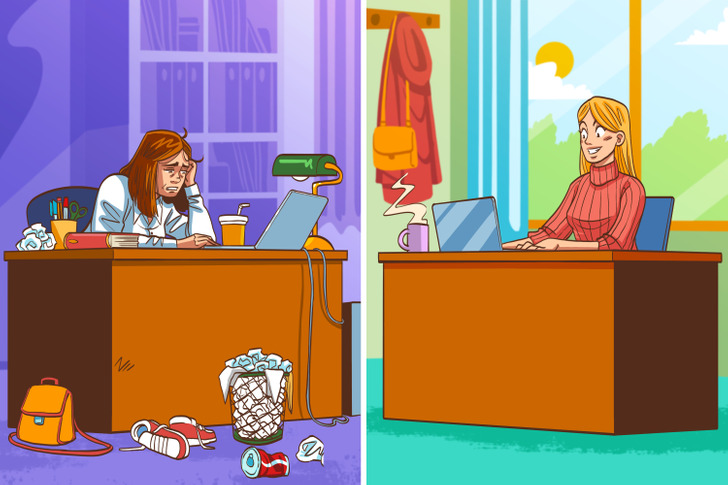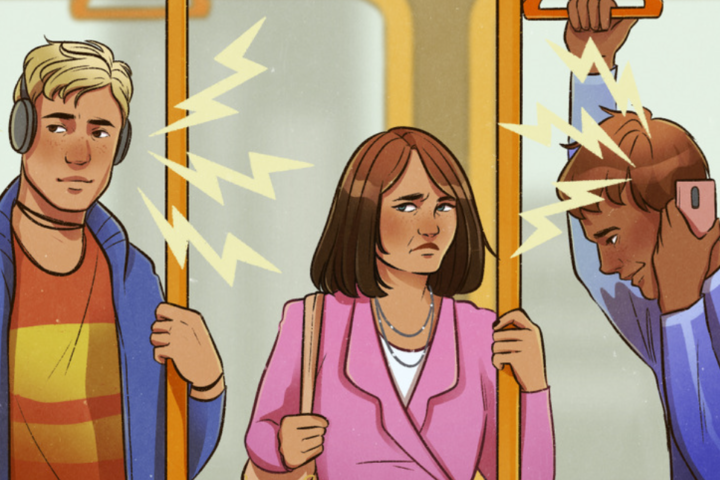Fed up with the same boring advice to not fall asleep when driving? Forget coffee and stretching.
We’ve got fresh, unconventional hacks that’ll keep you alert and energized on the road. Ready to discover some game-changing strategies? Let’s dive in!
1. Use the “Five-Minute Focus” Technique
To combat drowsiness and keep your mind sharp, try the “Five-Minute Focus” technique. Set a timer for five minutes and dedicate this time to a specific task related to driving.
This could include mentally reviewing your route, adjusting your driving position, or briefly analyzing road signs and conditions. These short, concentrated bursts of focus can help you stay engaged and combat monotony.
Additionally, use these five-minute breaks to do quick stretches or adjust your car’s settings to stay physically comfortable and mentally stimulated.
2. Try “Active Visualization” Techniques
Active visualization involves using creative mental exercises to engage your mind. For example, while driving, imagine you’re navigating through a high-stakes mission where every decision counts.
Create mental scenarios where you have to solve problems or make quick decisions. This technique can turn the drive into a more engaging and interactive experience, keeping your mind sharp, and prevent you to not fall asleep when driving.
3. Engage Your Mind
Keeping your mind engaged is crucial for staying alert while driving. Listening to stimulating content can help maintain your focus and prevent boredom. Choose upbeat music, interesting podcasts, or audiobooks that capture your attention.
Avoid content that might be too relaxing or monotonous, as this can contribute to drowsiness. Interactive content, such as trivia or brain-teasers, can also help keep your brain active. Engaging with audio content not only distracts from fatigue but also makes the drive more enjoyable.
4. Use Scent-Based Stimulation
Certain scents can help stimulate your senses and keep you awake. Use essential oils or scent-based products with invigorating scents like peppermint, citrus, or eucalyptus.
Place a small diffuser in your car or use scented air fresheners to keep your senses engaged. Scents that are refreshing and stimulating can help to reduce drowsiness and enhance alertness.
5. Use Bright Lighting Inside Car
The environment inside your vehicle can significantly impact your alertness. A cool, well-ventilated car is more conducive to staying awake compared to a warm, stuffy one.
Adjust the temperature to keep the cabin comfortably cool, and consider using air conditioning or opening a window for fresh air. Bright lighting inside the car can also help combat drowsiness. If you’re driving at night, avoid dim or overly relaxing lighting, and use a bright, cool light source to keep your environment stimulating.
Light therapy can be a useful tool for maintaining alertness, especially if you’re driving during early mornings, late evenings, or in low-light conditions. Bright, cool light sources can help trick your body into staying awake by mimicking natural daylight. Consider using a portable light therapy device or a bright LED light inside the car. This can help regulate your circadian rhythms and improve alertness. However, be cautious not to use overly bright lights that might cause glare or distraction while driving.
6. Use a “Tactical” Seat Position
Experiment with adjusting your seat position for an optimal “alertness” setting. Instead of the usual comfortable reclining position, adjust your seat so that you are more upright, with better lumbar support.
This position encourages better posture and keeps you more engaged with the driving task. Combine this with adjusting your mirrors to ensure you’re more actively looking around and scanning the road, which helps maintain your alertness.
7. Stay Active
Physical activity is a great way to boost your alertness and reduce fatigue. Incorporate light exercises into your routine, such as stretching, tensing and relaxing muscles, or even simple movements like rotating your wrists and ankles.
When you take a break, use the opportunity to walk around or perform quick exercises. Regular movement increases blood flow and reduces stiffness, which can help keep you more alert. Additionally, adjusting your driving posture and periodically shifting your position can also aid in maintaining comfort and focus.
8. Drink Water Every 5 Minutes

Proper hydration is essential for maintaining alertness and overall well-being. Dehydration can lead to fatigue and decreased concentration, making it harder to stay awake behind the wheel.
Keep a water bottle within reach and take regular sips throughout your drive. Aim for water over caffeinated or sugary drinks, as they can lead to a crash in energy levels. If you’re driving in hot weather or at high altitudes, you might need to drink more frequently. Hydration not only keeps you awake but also helps prevent headaches and dry eyes, which can further contribute to drowsiness.
9. Snack Smart
What you eat can have a significant impact on your energy levels and alertness while driving. Opt for healthy, high-energy snacks that provide sustained energy rather than quick fixes that might lead to a sugar crash.
Good options include nuts, fruit, yogurt, and whole-grain snacks. Avoid heavy, greasy, or carb-rich foods, as these can make you feel sluggish and sleepy. Snacks that are high in protein and fiber can help keep your energy levels stable and your mind sharp. Preparing a variety of snacks before your trip can help you avoid the temptation of unhealthy options at rest stops.
Bottom Line
Staying awake and alert while driving is essential for safety and effective vehicle operation. By incorporating these ten life hacks into your driving routine, you can enhance your focus and reduce the risk of fatigue-related accidents.
Remember to take regular breaks, stay hydrated, snack smart, and use caffeine wisely. Engaging your mind, adjusting your environment, staying active, and avoiding monotony are also key strategies for maintaining alertness. Prioritizing sleep and considering light therapy can further support your efforts to not fall asleep when driving.
Ultimately, if you ever feel excessively tired or find it difficult to stay alert, the best course of action is to pull over safely and rest. Your safety and the safety of others on the road should always be your top priority.

